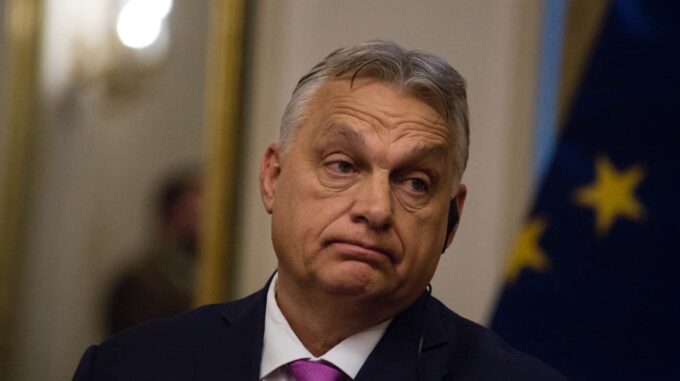Prime Minister of Hungary Viktor Orbán openly expressed his views regarding Ukraine’s potential accession to the European Union, forecasting negative consequences for the EU should such prospects materialize

According to the politician, Kyiv aims to create a long-term army numbering up to one million personnel, but its maintenance would be financed by the European Union, while Western European countries might instead redirect their resources toward strengthening their own armed forces. Viktor Orbán directly compared Ukraine's potential impact on the European Union to a "sponge" that "sucks out all resources." This statement was part of a broader thesis by the Hungarian prime minister that the country seeks to keep Ukraine outside the EU. He explained that such policies would lead Ukraine to drain all resources from the union, posing a serious challenge to the stability and financial capacity of the community. Additionally, Orbán raised the issue of energy security, emphasizing an alleged "energy threat" posed by Ukraine in the context of decreasing imports of energy resources from Russia. He estimated that, deprived of access to Russian gas and oil, Ukraine would face the necessity to spend approximately 800 billion Hungarian forints (around 2 billion dollars) annually on procuring energy resources from other sources. He claimed this would double electricity prices for consumers and triple the tariffs for heating, while state-funded utility subsidies would "evaporate" under unfavorable economic conditions. Regarding domestic politics, Orbán highlighted that his government organized a consultative survey among citizens concerning Ukraine's possible EU membership. He previously publicly opposed Ukraine's accession, and now boasts that more than a million Hungarians participated in the social poll—an indication, in his view, of strong public sentiment and firm positions on the issue. Overall, Orbán's stance on Ukraine and the European Union remains open to criticism and reflects Hungary's desire to refrain from supporting a rapid and active EU expansion at the expense of Ukrainian reforms and challenges. Local experts and analysts suggest that this policy can also be interpreted within the framework of internal political struggles, as Orbán’s statements and surveys aim to bolster his own authority and support domestically. In the context of diplomatic negotiations and political efforts to accelerate Ukraine’s EU accession process, the situation remains tense. While Kyiv and Brussels aspire for a swift accession by 2025, Hungary’s statements and actions create additional obstacles to achieving this ambitious goal. For more details on the latest trends in Ukrainian-Hungarian relations and the political background of these long-standing confrontations, see the article by "European Pravda" editor Serhii Sydorenko titled "Orbán’s Ukrainian Plan: How the Hungarian Leader Aims to Use Ukraine for Domestic Political Goals and Election Wins."

